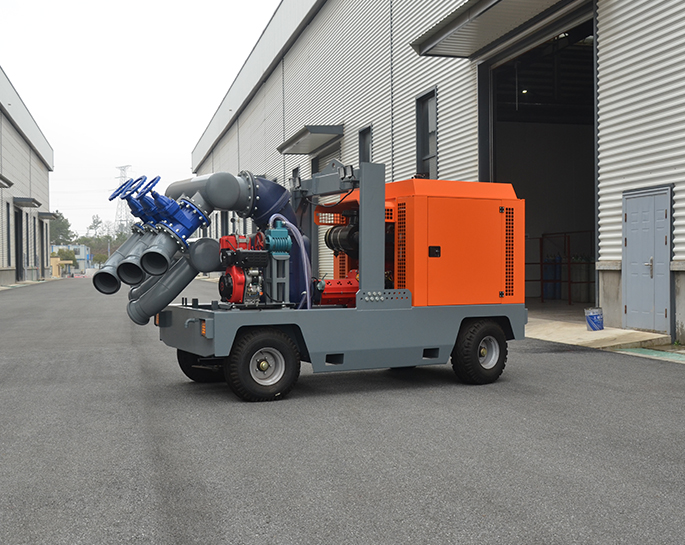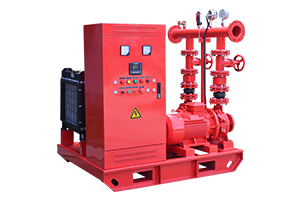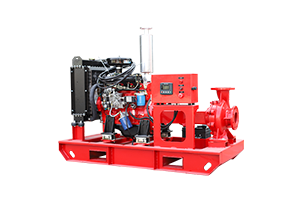How can I prevent common problems with mobile pump trucks?
Jun 03, 2024
Share:
Preventing common problems with mobile pump trucks involves regular maintenance, proper operation, and diligent inspection practices. Here are some key strategies to help ensure the reliable performance of mobile pump trucks:
### Regular Maintenance
1. **Scheduled Servicing:**
- Follow the manufacturer's recommended service schedule.
- Perform routine oil changes, filter replacements, and lubrication of moving parts.
2. **Hydraulic System:**
- Regularly check hydraulic fluid levels and quality.
- Inspect hydraulic hoses and connections for leaks, wear, and damage.
- Replace hydraulic filters as recommended.
3. **Engine Maintenance:**
- Monitor engine oil levels and quality, and replace oil and filters as needed.
- Inspect and replace air filters regularly.
- Check and maintain the cooling system, including coolant levels and radiator condition.
### Proper Operation
1. **Training:**
- Ensure all operators are properly trained and certified.
- Provide ongoing training on safe and efficient operation practices.
2. **Load Management:**
- Avoid overloading the pump truck beyond its rated capacity.
- Distribute loads evenly to prevent strain on the vehicle.
3. **Safe Operation:**
- Operate the pump truck within recommended speed limits.
- Use the pump truck only on suitable terrains to avoid unnecessary stress on the vehicle.
### Diligent Inspection Practices
1. **Pre-Operation Inspections:**
- Conduct daily inspections before using the pump truck, checking for visible signs of wear, leaks, and damage.
- Verify that all safety features are functioning correctly, including brakes, lights, and alarms.
2. **Post-Operation Checks:**
- Inspect the truck after each use to identify any issues that may have developed during operation.
- Address any problems immediately to prevent them from escalating.
### Specific Component Checks
1. **Pumping System:**
- Regularly clean and inspect the pump and associated piping for blockages or wear.
- Monitor pump performance and address any irregularities promptly.
2. **Chassis and Suspension:**
- Inspect the chassis for cracks, rust, and other structural issues.
- Check the suspension system, including springs and shock absorbers, for wear and proper operation.
3. **Electrical System:**
- Regularly test and inspect the battery and charging system.
- Check all wiring and connections for corrosion, wear, and secure attachment.
### Documentation and Monitoring
1. **Maintenance Logs:**
- Keep detailed records of all maintenance and repairs performed.
- Use these logs to track recurring issues and improve preventive measures.
2. **Performance Monitoring:**
- Utilize telematics or other monitoring systems to track the performance and health of the pump truck.
- Analyze data to identify trends and potential issues before they become critical.
By implementing these strategies, you can significantly reduce the likelihood of common problems with mobile pump trucks, ensuring they remain reliable and efficient in their operations.

### Regular Maintenance
1. **Scheduled Servicing:**
- Follow the manufacturer's recommended service schedule.
- Perform routine oil changes, filter replacements, and lubrication of moving parts.
2. **Hydraulic System:**
- Regularly check hydraulic fluid levels and quality.
- Inspect hydraulic hoses and connections for leaks, wear, and damage.
- Replace hydraulic filters as recommended.
3. **Engine Maintenance:**
- Monitor engine oil levels and quality, and replace oil and filters as needed.
- Inspect and replace air filters regularly.
- Check and maintain the cooling system, including coolant levels and radiator condition.
### Proper Operation
1. **Training:**
- Ensure all operators are properly trained and certified.
- Provide ongoing training on safe and efficient operation practices.
2. **Load Management:**
- Avoid overloading the pump truck beyond its rated capacity.
- Distribute loads evenly to prevent strain on the vehicle.
3. **Safe Operation:**
- Operate the pump truck within recommended speed limits.
- Use the pump truck only on suitable terrains to avoid unnecessary stress on the vehicle.
### Diligent Inspection Practices
1. **Pre-Operation Inspections:**
- Conduct daily inspections before using the pump truck, checking for visible signs of wear, leaks, and damage.
- Verify that all safety features are functioning correctly, including brakes, lights, and alarms.
2. **Post-Operation Checks:**
- Inspect the truck after each use to identify any issues that may have developed during operation.
- Address any problems immediately to prevent them from escalating.
### Specific Component Checks
1. **Pumping System:**
- Regularly clean and inspect the pump and associated piping for blockages or wear.
- Monitor pump performance and address any irregularities promptly.
2. **Chassis and Suspension:**
- Inspect the chassis for cracks, rust, and other structural issues.
- Check the suspension system, including springs and shock absorbers, for wear and proper operation.
3. **Electrical System:**
- Regularly test and inspect the battery and charging system.
- Check all wiring and connections for corrosion, wear, and secure attachment.
### Documentation and Monitoring
1. **Maintenance Logs:**
- Keep detailed records of all maintenance and repairs performed.
- Use these logs to track recurring issues and improve preventive measures.
2. **Performance Monitoring:**
- Utilize telematics or other monitoring systems to track the performance and health of the pump truck.
- Analyze data to identify trends and potential issues before they become critical.
By implementing these strategies, you can significantly reduce the likelihood of common problems with mobile pump trucks, ensuring they remain reliable and efficient in their operations.







